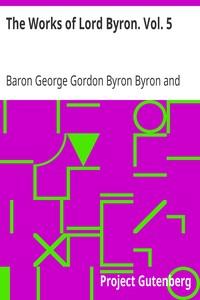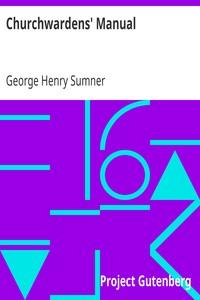Read this ebook for free! No credit card needed, absolutely nothing to pay.
Words: 109864 in 46 pages
This is an ebook sharing website. You can read the uploaded ebooks for free here. No credit cards needed, nothing to pay. If you want to own a digital copy of the ebook, or want to read offline with your favorite ebook-reader, then you can choose to buy and download the ebook.


: A Life of William Shakespeare with portraits and facsimiles by Lee Sidney Sir - Dramatists English Early modern 1500-1700 Biography; Shakespeare William 1564-1616 Biography; Shakespeare William 1564-1616 Bibliography; Stratford-upon-Avon (England) Biograph
er stands first on the list; he had already performed before James in Scotland in 1599 and 1601. Shakespeare comes second and Burbage third. The company to which they belonged was thenceforth styled the King's company; its members became 'the King's Servants' and they took rank with the Grooms of the Chamber. Shakespeare's plays were thenceforth repeatedly performed in James's presence, and Oldys related that James wrote Shakespeare a letter in his own hand, which was at one time in the possession of Sir William D'Avenant, and afterwards, according to Lintot, in that of John Sheffield, first duke of Buckingham.
In the autumn and winter of 1603 the prevalence of the plague led to the closing of the theatres in London. The King's players were compelled to make a prolonged tour in the provinces, which entailed some loss of income. For two months from the third week in October, the Court was temporarily installed at Wilton, the residence of William Herbert, third earl of Pembroke, and late in November the company was summoned by the royal officers to perform in the royal presence. The actors travelled from Mortlake to Salisbury 'unto the Courte aforesaide,' and their performance took place at Wilton House on December 2. They received next day 'upon the Councells warrant' the large sum of 30 pounds 'by way of his majesties reward.' Many other gracious marks of royal favour followed. On March 15, 1604, Shakespeare and eight other actors of the company walked from the Tower of London to Westminster in the procession which accompanied the King on his formal entry into London. Each actor received four and a half yards of scarlet cloth to wear as a cloak on the occasion, and in the document authorising the grant Shakespeare's name stands first on the list. The dramatist Dekker was author of a somewhat bombastic account of the elaborate ceremonial, which rapidly ran through three editions. On April 9, 1604, the King gave further proof of his friendly interest in the fortunes of his actors by causing an official letter to be sent to the Lord Mayor of London and the Justices of the Peace for Middlesex and Surrey, bidding them 'permit and suffer' the King's players to 'exercise their playes' at their 'usual house,' the Globe. Four months later--in August--every member of the company was summoned by the King's order to attend at Somerset House during the fortnight's sojourn there of the Spanish ambassador extraordinary, Juan Fernandez de Velasco, duke de Frias, and Constable of Castile, who came to London to ratify the treaty of peace between England and Spain, and was magnificently entertained by the English Court. Between All Saints' Day and the ensuing Shrove Tuesday, which fell early in February 1605, Shakespeare's company gave no fewer than eleven performances at Whitehall in the royal presence.
'Othello' and 'Measure for Measure.'
Under the incentive of such exalted patronage, Shakespeare's activity redoubled, but his work shows none of the conventional marks of literature that is produced in the blaze of Court favour. The first six years of the new reign saw him absorbed in the highest themes of tragedy, and an unparalleled intensity and energy, which bore few traces of the trammels of a Court, thenceforth illumined every scene that he contrived. To 1604 the composition of two plays can be confidently assigned, one of which--'Othello'--ranks with Shakespeare's greatest achievements; while the other--'Measure for Measure'--although as a whole far inferior to 'Othello,' contains one of the finest scenes and one of the greatest speeches in the range of Shakespearean drama. 'Othello' was doubtless the first new piece by Shakespeare that was acted before James. It was produced at Whitehall on November 1. 'Measure for Measure' followed on December 26. Neither was printed in Shakespeare's lifetime. The plots of both ultimately come from the same Italian collection of novels--Giraldi Cinthio's 'Hecatommithi,' which was first published in 1565.
Cinthio's painful story of 'Othello' is not known to have been translated into English before Shakespeare dramatised it. He followed its main drift with fidelity, but he introduced the new characters of Roderigo and Emilia, and he invested the catastrophe with new and fearful intensity by making Iago's cruel treachery known to Othello at the last, after Iago's perfidy has impelled the noble-hearted Moor in his groundless jealousy to murder his gentle and innocent wife Desdemona. Iago became in Shakespeare's hands the subtlest of all studies of intellectual villainy and hypocrisy. The whole tragedy displays to magnificent advantage the dramatist's fully matured powers. An unfaltering equilibrium is maintained in the treatment of plot and characters alike.
I love the people, But do not like to stage me to their eyes. Though it do well, I do not relish well Their loud applause and aves vehement. Nor do I think the man of safe discretion That does affect it.
Of like tenor is the succeeding speech of Angelo :
The general , subject to a well-wish'd king, . . . Crowd to his presence, where their untaught love Must needs appear offence.
'Macbeth.'
In 'Macbeth,' his 'great epic drama,' which he began in 1605 and completed next year, Shakespeare employed a setting wholly in harmony with the accession of a Scottish king. The story was drawn from Holinshed's 'Chronicle of Scottish History,' with occasional reference, perhaps, to earlier Scottish sources. The supernatural machinery of the three witches accorded with the King's superstitious faith in demonology; the dramatist lavished his sympathy on Banquo, James's ancestor; while Macbeth's vision of kings who carry 'twofold balls and treble sceptres' plainly adverted to the union of Scotland with England and Ireland under James's sway. The allusion by the porter to the 'equivocator . . . who committed treason' was perhaps suggested by the notorious defence of the doctrine of equivocation made by the Jesuit Henry Garnett, who was executed early in 1606 for his share in the 'Gunpowder Plot.' The piece was not printed until 1623. It is in its existing shape by far the shortest of all Shakespeare's tragedies, and it is possible that it survives only in an abbreviated acting version. Much scenic elaboration characterised the production. Dr. Simon Forman witnessed a performance of the tragedy at the Globe in April 1611, and noted that Macbeth and Banquo entered the stage on horseback, and that Banquo's ghost was materially represented Like 'Othello,' the play ranks with the noblest tragedies either of the modern or the ancient world. The characters of hero and heroine--Macbeth and his wife--are depicted with the utmost subtlety and insight. In three points 'Macbeth' differs somewhat from other of Shakespeare's productions in the great class of literature to which it belongs. The interweaving with the tragic story of supernatural interludes in which Fate is weirdly personified is not exactly matched in any other of Shakespeare's tragedies. In the second place, the action proceeds with a rapidity that is wholly without parallel in the rest of Shakespeare's plays. Nowhere, moreover, has Shakespeare introduced comic relief into a tragedy with bolder effect than in the porter's speech after the murder of Duncan The theory that this passage was from another hand does not merit acceptance. It cannot, however, be overlooked that the second scene of the first act--Duncan's interview with the 'bleeding sergeant'--falls so far below the style of the rest of the play as to suggest that it was an interpolation by a hack of the theatre. The resemblances between Thomas Middleton's later play of 'The Witch' and portions of 'Macbeth' may safely be ascribed to plagiarism on Middleton's part. Of two songs which, according to the stage directions, were to be sung during the representation of 'Macbeth' , only the first line of each is noted there, but songs beginning with the same lines are set out in full in Middleton's play; they were probably by Middleton, and were interpolated by actors in a stage version of 'Macbeth' after its original production.
'King Lear.'
'King Lear,' in which Shakespeare's tragic genius moved without any faltering on Titanic heights, was written during 1606, and was produced before the Court at Whitehall on the night of December 26 of that year. It was entered on the 'Stationers' Registers' on November 26, 1607, and two imperfect editions, published by Nathaniel Butter, appeared in the following year; neither exactly corresponds with the other or with the improved and fairly satisfactory text of the Folio. The three versions present three different playhouse transcripts. Like its immediate predecessor, 'Macbeth,' the tragedy was mainly founded on Holinshed's 'Chronicle.' The leading theme had been dramatised as early as 1593, but Shakespeare's attention was no doubt directed to it by the publication of a crude dramatic adaptation of Holinshed's version in 1605 under the title of 'The True Chronicle History of King Leir and his three Daughters--Gonorill, Ragan, and Cordella.' Shakespeare did not adhere closely to his original. He invested the tale of Lear with a hopelessly tragic conclusion, and on it he grafted the equally distressing tale of Gloucester and his two sons, which he drew from Sidney's 'Arcadia.' Hints for the speeches of Edgar when feigning madness were drawn from Harsnet's 'Declaration of Popish Impostures,' 1603. In every act of 'Lear' the pity and terror of which tragedy is capable reach their climax. Only one who has something of the Shakespearean gift of language could adequately characterise the scenes of agony--'the living martyrdom'--to which the fiendish ingratitude of his daughters condemns the abdicated king--'a very foolish, fond old man, fourscore and upward.' The elemental passions burst forth in his utterances with all the vehemence of the volcanic tempest which beats about his defenceless head in the scene on the heath. The brutal blinding of Gloucester by Cornwall exceeds in horror any other situation that Shakespeare created, if we assume that he was not responsible for the like scenes of mutilation in 'Titus Andronicus.' At no point in 'Lear' is there any loosening of the tragic tension. The faithful half-witted lad who serves the king as his fool plays the jesting chorus on his master's fortunes in penetrating earnest and deepens the desolating pathos.
Free books android app tbrJar TBR JAR Read Free books online gutenberg
More posts by @FreeBooks


: More Russian Picture Tales by Karrik Valerian Viliamovich Forbes Nevill Translator - Folklore Russia Children's Picture Books; Folklore; Children's Myths Fairy Tales etc.







